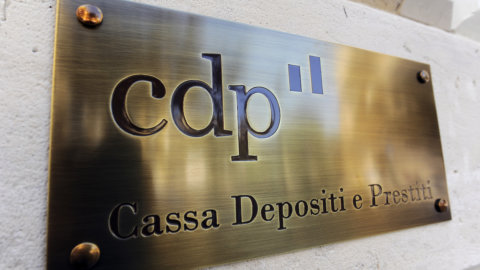In today's exceptionally competitive society, there is a high demand for public relations professionals e public affairsof those strategic relationships with government and parliament, which aim to bring to the attention of the public decision-maker the requests and interests of organizations, companies and the local area that feel that they are not listened to. Listening has always been a scarce resource for decision-makers and public affairs can provide the necessary support to companies, both large and small, on political choices that have an impact on their operations. The public affairs actions, combined with the vertical activities of lobbying and advocacy, allows you to structure and plan strategic actions to promote specific interests and give continuity in the representation of your requests.
Lobbying in Italy continues to be considered a hidden or problematic activity
The lobby can, on closer inspection, be considered a strategic activity for democracy. Interest representation is essential to bring the problems, requests and specificities of all organizations to the attention of the public decision-maker. With public affairs and lobbying activities, organizations directly convey their position to legislators and decision-makers on issues with the highest impact. Companies and organizations may have a public affairs manager in their organizational chart or make use of companies specialized in strategic consultancy and public affairs. Some strategic activities of lobbyists are: verbal and written communications; participation in meetings with policy makers to submit strategic dossiers; electronic communications and social media; conversations or web calls with public decision makers. There are several critical tasks lobbyists must complete to achieve their goals. First, they must build a professional rapport and explain the issue at hand. Second, they must demonstrate their expertise by providing quality data and further building credibility in favor of the dossier represented; provide further assistance to policy makers, helping to draft new laws to ensure the balance of interests in the field. The lobbying strategy can also gather diverse audiences around specific policy issues, as well as engage, with advocacy activities coalition building, to unify even non-congruent interests and represent them to decision-makers. The public affairs, lobbying and advocacy activities use strategic communication and influence activities to raise awareness of the topic on the agenda of the dossier.
We asked Vincenzo Manfredi – Head of Public Policy and Advocacy at Assoholding – what added value public affairs and lobbying activities could have for companies engaged in generational change.
Manfredi – The reference discipline of all the activities we are talking about is public relations. The public relations expert (and public affairs and lobbying, management and more) is first and foremost an expert in "organizational listening". In practice, he is a strategic consultant who takes care of the organizations and the people who are part of them. In generational transitions, in addition to legal and tax experts, it is essential to investigate the nature and vocation of the company. This means that in preserving the company's value creation, the personal fulfillment of individual second or third generation people cannot fail to be considered fatal. The data tell us that there is ahigh mortality of family businesses during the generational transition: of the approximately 35.000 family businesses involved in a generational change every year, on average only about 30% survive with the second generation, only 12% with the third, and a small 3% continue to operate beyond the fourth generation. There is a need for legislative reform measures but also of consultancy capable of representing the interests of individuals, harmonizing them with those of the entire organisation, its history and its vocation.
In the age of social media, how much does the institutional role of activities affect
anticipate the evolution of the scenarios and manage their change
Manfredi – Institutional activities, internal to the company or those towards the public decision-maker, are the missing link in organisations, especially in small and medium-sized companies. Do you know that we have been talking about "corporate social responsibility”, understood as all those activities that make an organization responsible from the point of view of sustainability. In recent years we have started talking about "corporate political responsibility", understood as the responsibility "Policy” of being and doing business. To the
As complexity and geopolitical variables grow, every company must equip itself with tools capable of analyzing the present and trying to predict the future, not only with reference to financial or management risks, but also political and institutional ones. In this way change management – change management is a public relations activity – becomes a strategic asset for the creation of value even before the creation of profit.
The new Italian and European borders, what's new for 2024?
Manfredi – Although the question is complex, I believe that next year's most important event will be the European elections. Europe needs to change pace and return to the initial spirit of a true community of peoples and intentions. At the same time, it is precisely in Europe that we Italians must become better at representing our interests by creating a "system", even beyond political positioning. Last but not least, the outcome of the war in Ukraine: we have become accustomed to an absurd conflict – but there are many others that are almost unknown – which has a daily effect on our lives. I think we will have to start reflecting on what substantial paradigm shift we want to give to the governance of the planet. It doesn't seem to me that goals of real change can be achieved with the green revolution alone. I think we need to start thinking in terms of regeneration and the common good, putting the person back at the centre which means giving up conflict at any cost and taking the path of balancing the interests in the field to achieve the common good.
Who is Vincenzo Manfredi
He has been working for more than 25 years as a public speaker and expert in public affairs and strategic communication. He is an expert in advocacy and corporate social responsibility. He began his career in the financial sector where he led corporate identity, stakeholder engagement, advocacy and CSR activities in leading Italian banking groups. He is Head of Public Policy and Advocacy of Assoholding, the association of Italian financial holding companies; Public Affairs Director of G2R, strategic consultancy, public relations and communication company. He is Scientific Director of FERPILab, the Think tank of FERPI (Federation of Italian Public Relations). Strategic consultant on corporate positioning and reputation, advocacy campaigns and engagement with Members of Parliament, he helps clients build a solid relationship system. He is Adjunct Professor at the Master in Communication and Political and Institutional Marketing of the Luiss School of Government. He is a member of the Italyuntold Association and of Public Affairs and Careers.





